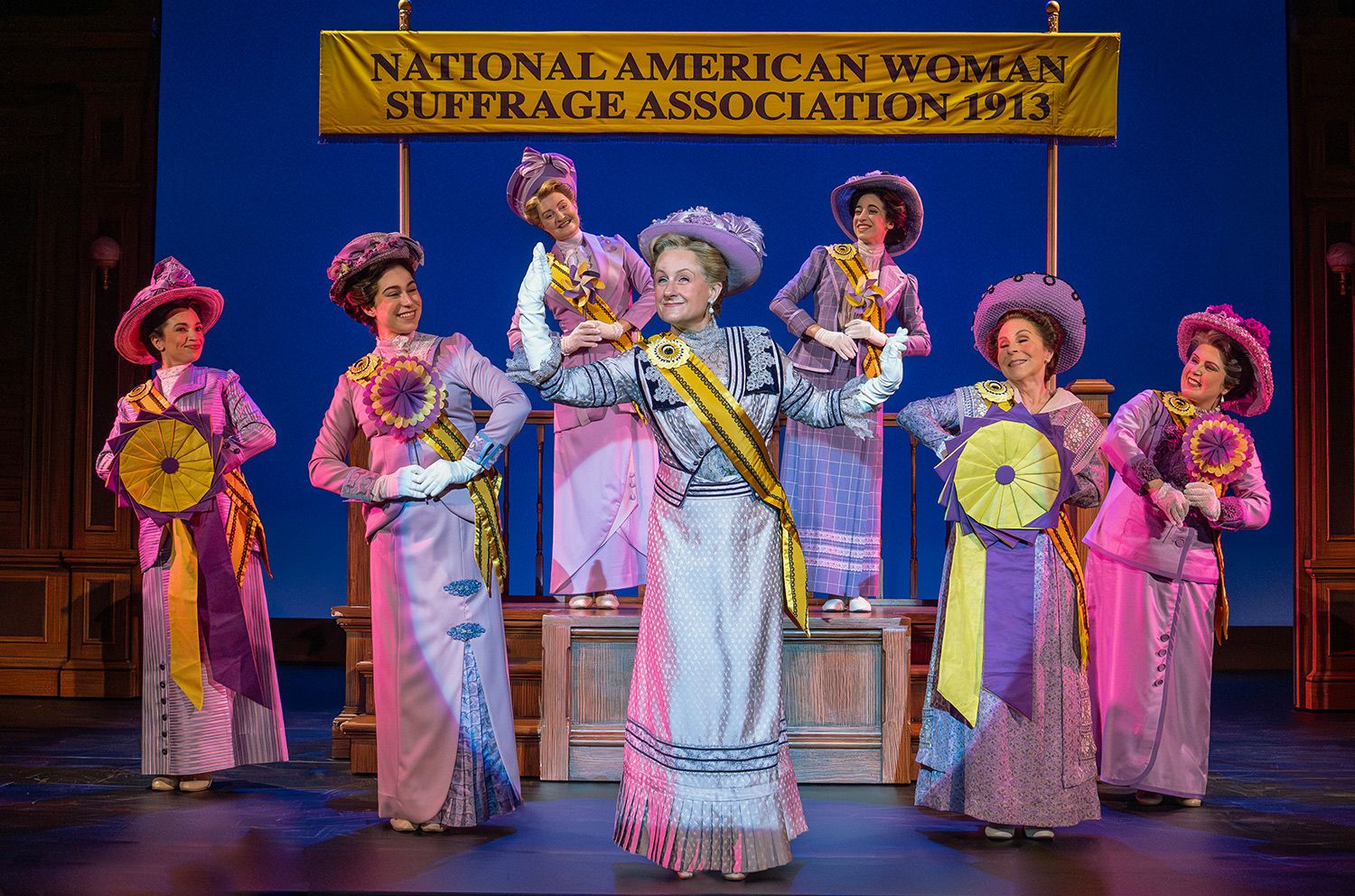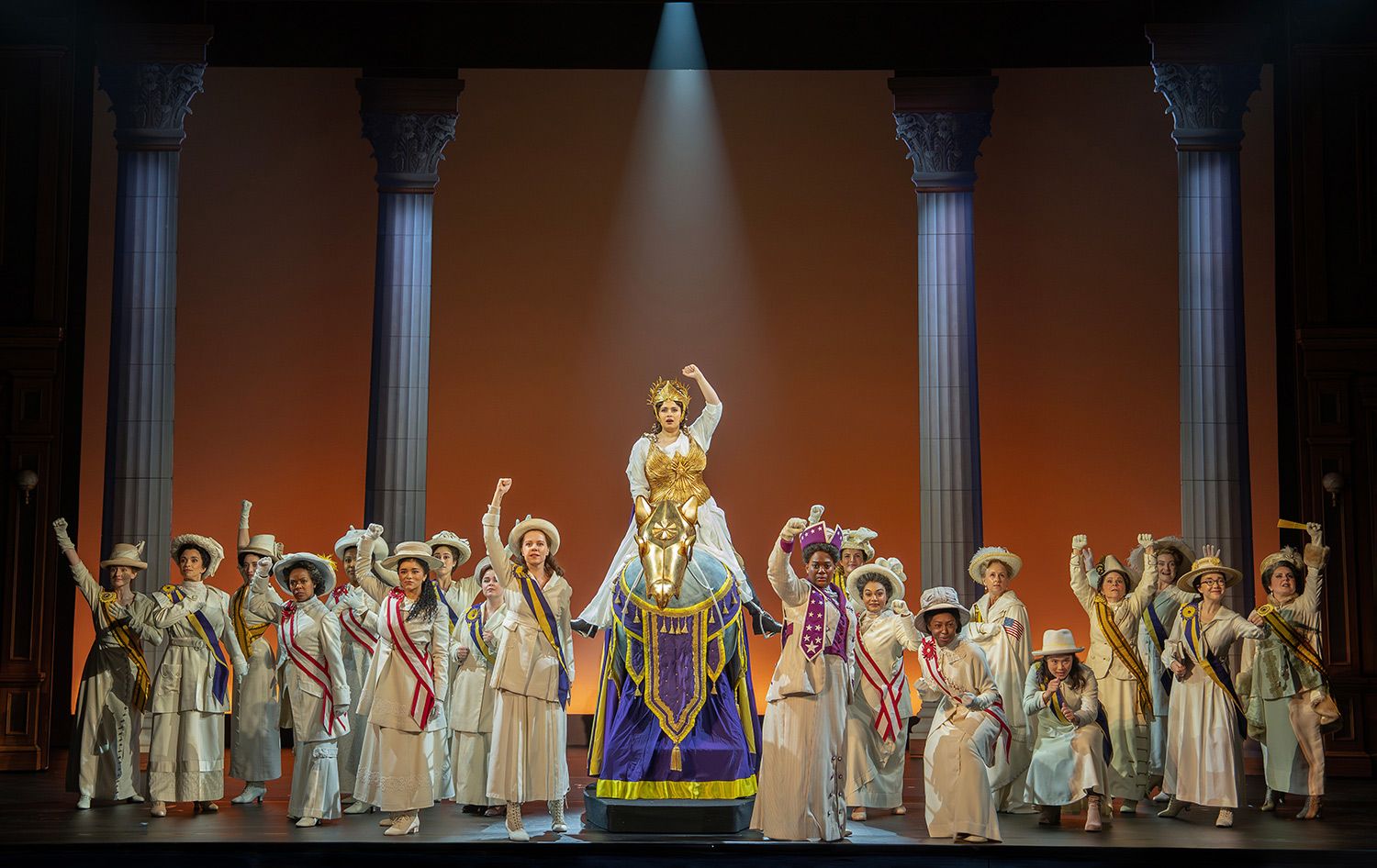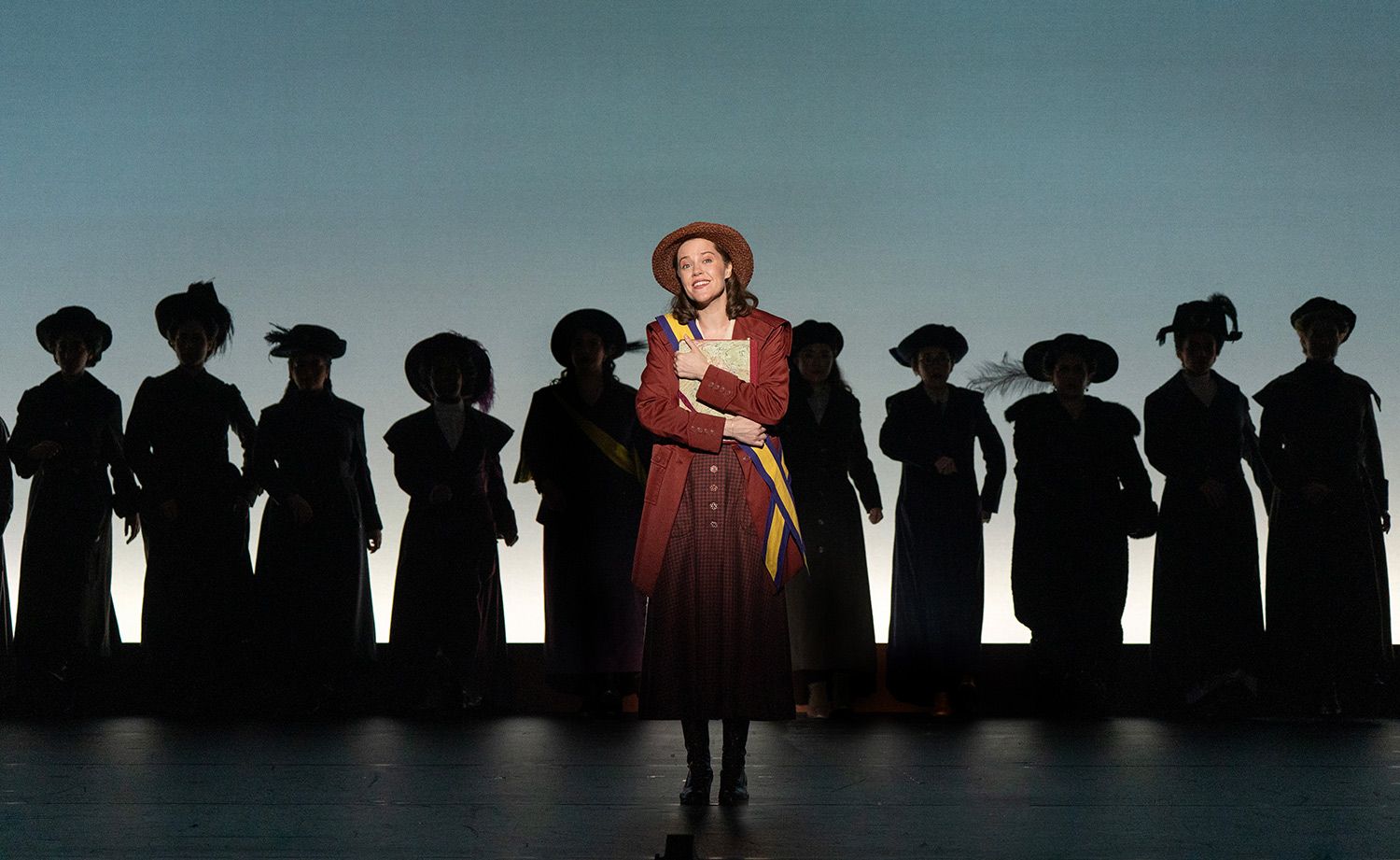It is hard not to hear the many, painful echoes of our own time in the story of Suffs, the Tony-winning Broadway musical based on real events in the women’s suffrage movement of the 1910s.
Suffs arrives in San Francisco in a week when the energy of resistance against a presidential administration is high, and when we feel like we’re in a precarious moment where the rights of immigrants are being trampled on, the histories of Black Americans are being erased or minimized — at least in official circles — and the entire right to exist of queer and transgender people is under threat.
And Suffs is a musical about politics, about the long arc of history, and the slow slog of the Civil Rights Movement in America. And, with more than a few nods to Hamilton, it’s a contemporary musical that is packed with words, serious themes, and plenty of very beautiful music — it’s no wonder that it took home the Tony Awards for Best Book and Best Score, even though it didn’t take the top prize last year.
That book and score were both written by 37-year-old Tisch graduate Shaina Taub, who is also a performer who’s currently on Broadway in the revival of Ragtime, playing the labor activist Emma Goldman. In addition to composing and starring in highly acclaimed Shakespeare adaptations for the Public Theater in recent years, Taub played the lead role of Alice Paul in Suffs on Broadway.
On tour, the Alice Paul role has been taken over by the extremely talented Maya Keleher, who breathes tremendous energy and passion into the role of this boundlessly passionate stalwart of the women’s movement. Paul is depicted in the show’s opening scenes as an upstart agitator who was impatient with the established activists of the National American Women’s Suffrage Association, or NAWSA, co-founded by Susan B. Anthony. By 1913, the organization was already 23 years old, and the women’s suffrage movement was over 60 years old, and it was being led by Anthony’s successor, Carrie Chapman Catt.
 Marya Grandy (Carrie Chapman Catt) and company in the First National Touring Company of SUFFS. Photo by Joan Marcus, 2025.
Marya Grandy (Carrie Chapman Catt) and company in the First National Touring Company of SUFFS. Photo by Joan Marcus, 2025.
Suffs focuses much of its story on the tensions and rivalry between Catt, played by the viciously talented Marya Grandy, and Paul, and how Paul and her band of younger activists helped push the old guard to swifter action. The show opens with Catt and her establishment ladies singing “Let Mother Vote,” which was a slogan of the suffrage movement. But while NAWSA’s tactics were generally slow and steady, believing they didn’t yet have the support of 36 states for ratification, it was ultimately the younger generation’s noisemaking that helped push President Woodrow Wilson to endorse the 19th Amendment — which would end up being ratified by the skin of its teeth, to Wilson’s own surprise, thanks to a single vote in the Tennessee legislature. (A song dramatizing that vote, in which a mother narrates the letter she writes to convince her state senator son to vote in favor of ratification, is a tearjerker to be sure.)
In between that opening number and the depiction of the movement’s crowning achievement, Suffs has the arduous task of distilling years of frustrating activism and lack of movement on the suffrage issue. Paul and her friends were instrumental in organizing the first march for women’s suffrage, the 1913 Women’s Suffrage Procession, which took place in Washington the day before Wilson’s first inauguration. The historic event, in which activist Inez Milholland rode a white horse and wore a gold crown to lead the procession, is depicted in one triumphant moment in Act 1, with the song “The March (We Demand Equality).”
 Monica Tulia Ramirez (Inez Milholland) and company in the First National Touring Company of SUFFS. Photo by Joan Marcus, 2025
Monica Tulia Ramirez (Inez Milholland) and company in the First National Touring Company of SUFFS. Photo by Joan Marcus, 2025
It’s one of several moving, triumphal numbers in the show, the greatest of which may be “I Was Here” at the end of Act 2, which has the characters singing about wanting their daughters and granddaughters and great granddaughters to know they were there fighting this fight. And the show closes with the rousing “Keep Marching,” which is full of lyrics about the long game of activism like “You won’t live to see the future that you fight for / Maybe no one gets to reach that perfect day,” and “The gains will feel small and the losses too large/ Keep marching, keep marching / You’ll rarely agree with whoever’s in charge / Keep marching, keep marching.”
The show has too many moments of tight harmonies and lovely musical themes to mention — though “She and I,” in Act 2, where Alice Paul and Carrie Chapman Catt reunite for a final duet on the eve of the ratification vote, might be the high point of these. And despite the difficulties of staying true to the messiness of history, the show admirably keeps our attention through the frame of these women’s voices.
Also very strong in a cast of extraordinary voices is Danyel Fulton as Ida B. Wells, whose story as an activist for the rights of both African Americans and women highlights a core tension in the women’s rights movement around race; and Monica Tulia Ramirez as Inez Milholland, who sadly died at age 30 of anemia while campaigning for the suffrage movement.
Leigh Silverman’s masterful direction of this large cast also deserves special praise, as does the choreography by Mayte Natalio, which emphasizes the collective, marching spirit.
The audience at Thursday’s opening night seemed broadly moved by the show, the standing ovation notwithstanding — and the cast all seems thrilled to be performing it. Sweeping, historical, and educational musicals like this that are also filled with great music are none too common, and I overheard one audience member saying on the way out, “I should make sure my sister brings the girls to see this.”
Suffs plays through November 9 at the Orpheum Theater. Find tickets here.

